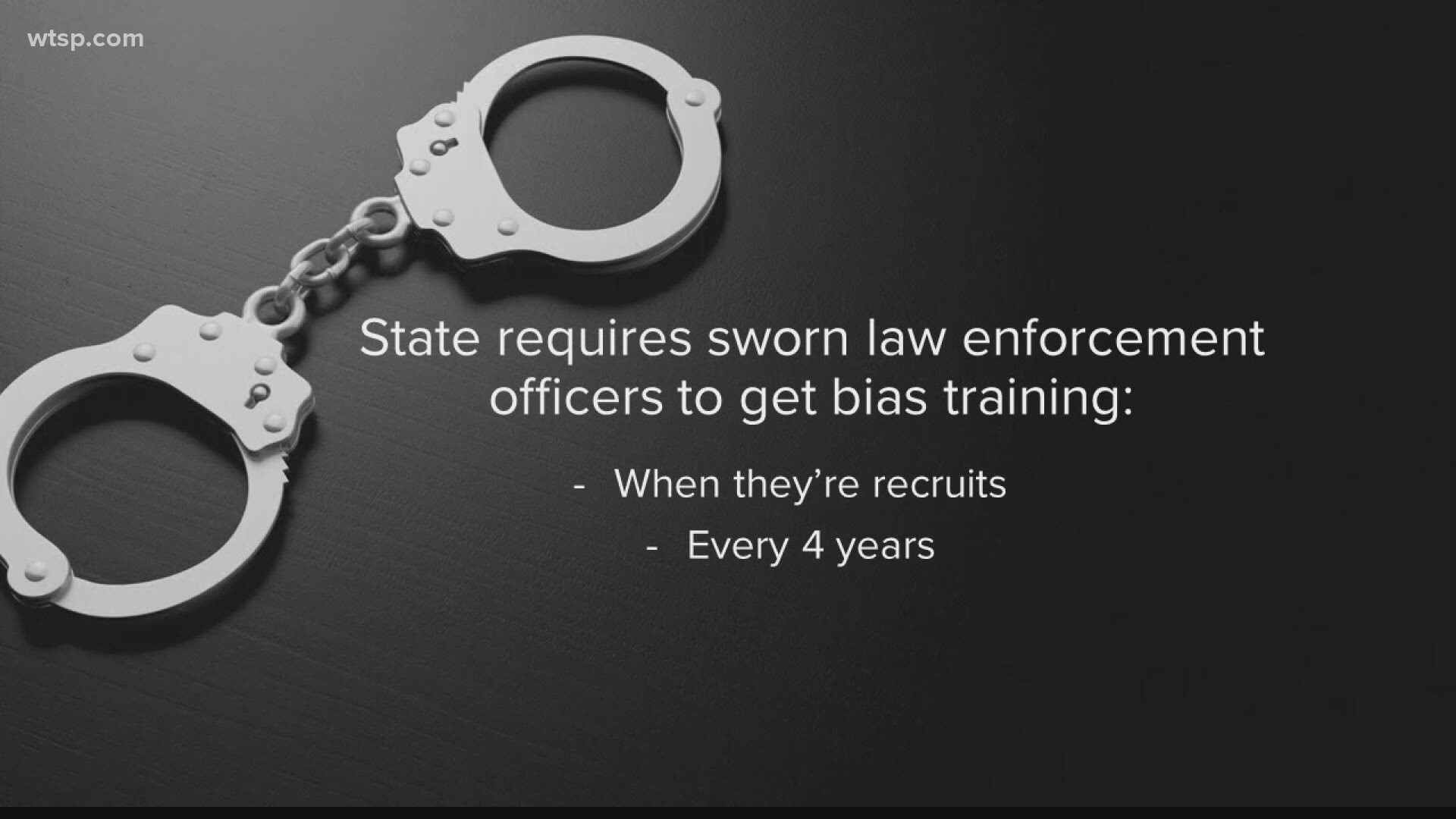Some law enforcement agencies are responding to calls for reform by pledging to increase bias training for officers.
Trainers teach officers to be aware of their biases and how to prevent those biases from affecting how they treat people.
St. Petersburg Police Chief Anthony Holloway tells 10 Investigates officers there do bias training every year.
“Well, we all have our bias. So let’s, first of all, just [say that] right off the top there. But, it’s to make sure that officers are doing the right thing out there. And, that’s monitored several ways, by complaints, by traffic stops,” Holloway said.
St. Pete is one of several local agencies that train more frequently than the minimum standard set by Florida law. The state requires sworn law enforcement officers to get bias training when they’re recruits, and then every four years after that.
Bethune-Cookman University Criminal Justice Department Chair Dr. Randy Nelson said he doesn’t think that’s frequent enough.
“I personally don’t. And like I said, just as Florida is committed to advancing and evolving the tactical aspect, I think we’re behind when it comes to communication. All this is part of communication, de-escalation. It’s the same conversation. I think we’re behind,” Nelson said.
The Florida Department of Law Enforcement’s instructor manual for “Discriminatory Profiling and Professional Traffic Stops” uses an activity called “The Perils of Driving While Black” to help students understand real and perceived racial profiling.
The course also uses role-play to help officers practice how to minimize conflict. The copyright at the bottom of each page shows the training was written in 2001, meaning all the references are more than 20 years old.
While the state requires bias training every four years, some local law enforcement agencies do it more often.
Here in Tampa Bay, Largo Police, the Manatee County Sheriff’s Office, Pasco Sheriff’s Office, Polk County Sheriff’s Office and St. Pete Police tell 10 Investigates they train every year.
In 2017, the Commission on Accreditation for Law Enforcement Agencies, or CALEA, changed its standard to require bias training annually -- which is why the Polk County Sheriff’s Office says it made the switch.
10 Investigates reporter Jenna Bourne will take a deeper dive into the effectiveness of police bias training in her next episode of What’s Brewing. It comes out Friday on our YouTube channel The Deeper Dive. Subscribe to make sure you don’t miss the episode!
- Bubba Wallace responds after FBI says noose found in stall there as early as Oct. 2019
- Coronavirus in Florida: State breaks another record with more than 5,000 new cases in a day
- NY, NJ and Connecticut to require travelers from COVID-19 hotspots, including Florida, to quarantine for 14 days
- Heat Advisory in effect for parts of the Tampa Bay area
- Police rescue dog left in hot car in Clearwater Beach parking garage
- 'It’s not over:' MacDill reservist who spent months on COVID-19 front lines in NYC returns home with warning
- Dr. Fauci hopeful for COVID-19 vaccine by late 2020, early 2021
- New cases, hospitalizations, deaths: How Florida is doing in its COVID-19 battle
►Stay In the Know! Sign up now for the Brightside Blend Newsletter



